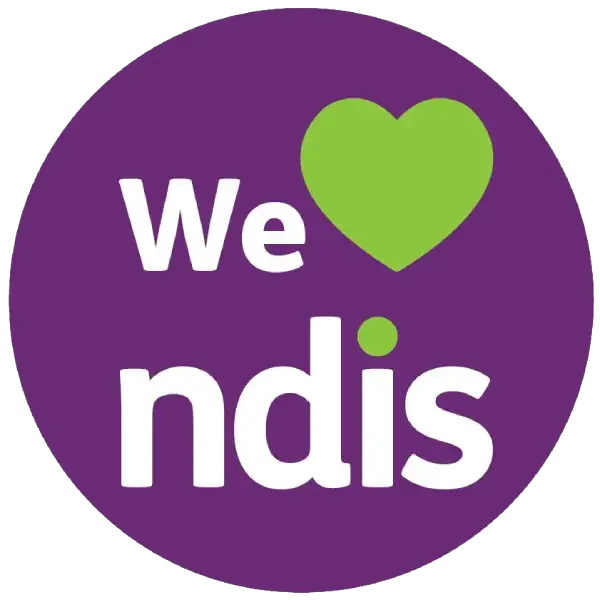Enquire about our SIL vacancies
As our loved ones age, it becomes essential to make sure they receive the care and support they need to live their later years with dignity, comfort, and safety. In Melbourne, a city with a robust healthcare system, families have a wide range of aged care options to consider. However, navigating these services can be daunting for many. With the right approach, families can ensure that their elderly family members receive the care they deserve.
Here’s a comprehensive guide to aged care in Melbourne, providing practical tips and insights for families on how to make informed decisions about their loved one’s care.
Different Types of Aged Care Options
The first step in choosing the right aged care option is to understand the various services available. In Melbourne, families have access to both government-funded and private services. These include:Aged Care at Home
For seniors who wish to remain in their own homes but need assistance with daily activities, home care is an excellent option. Aged care services at home range from help with personal care (such as bathing and dressing) to more comprehensive support, including nursing care, physiotherapy, and assistance with household chores.- Home Care Packages (HCP) are government-funded packages that provide a personalised care plan based on the individual’s needs. There are four levels of care, from basic support to more complex care.
- Private Home Care: If the government package is insufficient, families can opt for private care providers who offer tailored services to meet their loved one’s specific needs.
Residential Aged Care (Nursing Homes)
If your loved one requires more intensive care that can’t be provided at home, residential aged care Melbourne (often referred to as nursing homes) is an option. These facilities offer 24/7 care, including nursing services, personal assistance, and meals. Melbourne provides a range of aged care homes, each with services tailored to the level of care required.- Residential care homes can be either low care (for individuals who require assistance with everyday tasks) or high care (for those with more complex medical conditions).
- Many homes also provide services for individuals with dementia, offering a secure environment that meets their unique needs.
Short-Term Respite Care
For caregivers who need a break from providing full-time care, respite care is a temporary option. Respite services enable families to take a break, knowing their loved one is in safe hands. Respite care can be offered either at home or in residential care facilities, depending on the individual’s needs.How Can You Assess Your Loved One’s Needs?
Choosing the right aged care option begins with understanding the unique needs of your loved one. Some important factors to consider include:- Health and Medical Needs: Does your loved one have complex medical needs that require daily nursing care, or are they more independent?
- Mobility: Are they able to move around independently, or do they need assistance with movement?
- Cognitive Functioning: Is your loved one experiencing memory loss or cognitive decline, such as dementia or Alzheimer’s?
- Social Needs: Are they able to participate in social activities, or do they need support in engaging with others?
- Personal Preferences: Does your loved one have any preferences regarding where they live or the kind of care they receive?
Explore Government Assistance Programs
In Australia, aged care services are often subsidized by the government to make them more affordable for families. The My Aged Care website is the primary gateway for accessing government-funded aged care services, including Home Care Packages and residential aged care placements. Some key government programs include:- Home Care Packages (HCP): As mentioned earlier, these packages provide funding for seniors who want to stay at home. The amount of funding depends on the level of care needed.
- Commonwealth Home Support Programme (CHSP): This program provides basic services like domestic assistance, personal care, and respite care for older Australians who do not require extensive support.
- Aged Care Funding: Financial assistance is available for residential aged care, and there are also subsidies for accommodation in some facilities.
How Can You Find the Right Aged Care Provider in Melbourne?
Melbourne has a wide range of aged care providers, from large organizations with multiple facilities to smaller, more personalised services. When choosing a provider, it’s essential to:- Visit the facilities: If considering residential care, schedule visits to different homes to inspect the facilities. Look for cleanliness, safety features, and the overall environment. You’ll also want to meet staff members and see how they interact with residents.
- Read reviews and check ratings: Websites like Aged Care Quality and Safety Commission provide ratings for residential aged care facilities, helping families make informed choices.
- Ask about specialized care: Ensure the provider offers specialized care for specific conditions, such as dementia or palliative care.
- Consider location: Proximity is important for families who want to visit often, so choose a provider that’s convenient for family members and friends.
What Are the Costs of Aged Care?
Aged care can be costly, and the expenses vary depending on the type of care, the provider, and the individual’s financial situation. Some important cost considerations include:- Residential Care Fees: These can include daily care fees, accommodation costs, and extra fees for services such as physiotherapy or additional personal care.
- Home Care Package Contributions: While government subsidies cover much of the cost, you may need to contribute a fee based on your loved one’s income and assets.
- Financial Advice: Seeking advice from a financial advisor specializing in aged care can help you understand how to manage costs, including how to use assets, superannuation, or insurance.
Involve Your Loved One in the Decision
It’s essential to involve your loved one in the decision-making process as much as possible. This ensures that their preferences and wishes are respected. Engage in open, empathetic conversations with them about their care needs and options, and allow them to have a say in their future care arrangements.How Can You Stay Connected and Monitor Their Care?
Once you have chosen an aged care service, it’s vital to stay actively involved. Regularly check in with your loved one and the care team to ensure everything is going well. Stay in touch with the facility or home care provider to address any concerns or issues that may arise. If your loved one is in a residential facility, ensure they are receiving the level of care promised during the initial assessment. Most facilities have a complaints process that can be used if there are any concerns about the quality of care.Conclusion
Choosing the right aged care for your loved ones in Melbourne requires careful consideration, patience, and a proactive approach. By understanding the available options, assessing your loved one’s needs, and leveraging government support, you can ensure that your family member receives the appropriate care to enhance their quality of life in their later years.Whether at home or in a residential facility, with the right support, your loved one can enjoy a fulfilling, comfortable, and dignified life in their golden years. At Ambition Health Group, we are committed to helping families navigate the complexities of aged care, offering tailored services and expert guidance to ensure your loved ones receive the best possible care and support.
Recent Posts
Top Rated Services
Get A Quick Quote Now
Enquire about our SDA vacancies
Enquiry Now
Consult Our Care Experts
Grab Your Free Consultation Today!
Or give us a call to speak to someone now
1300 668 655









